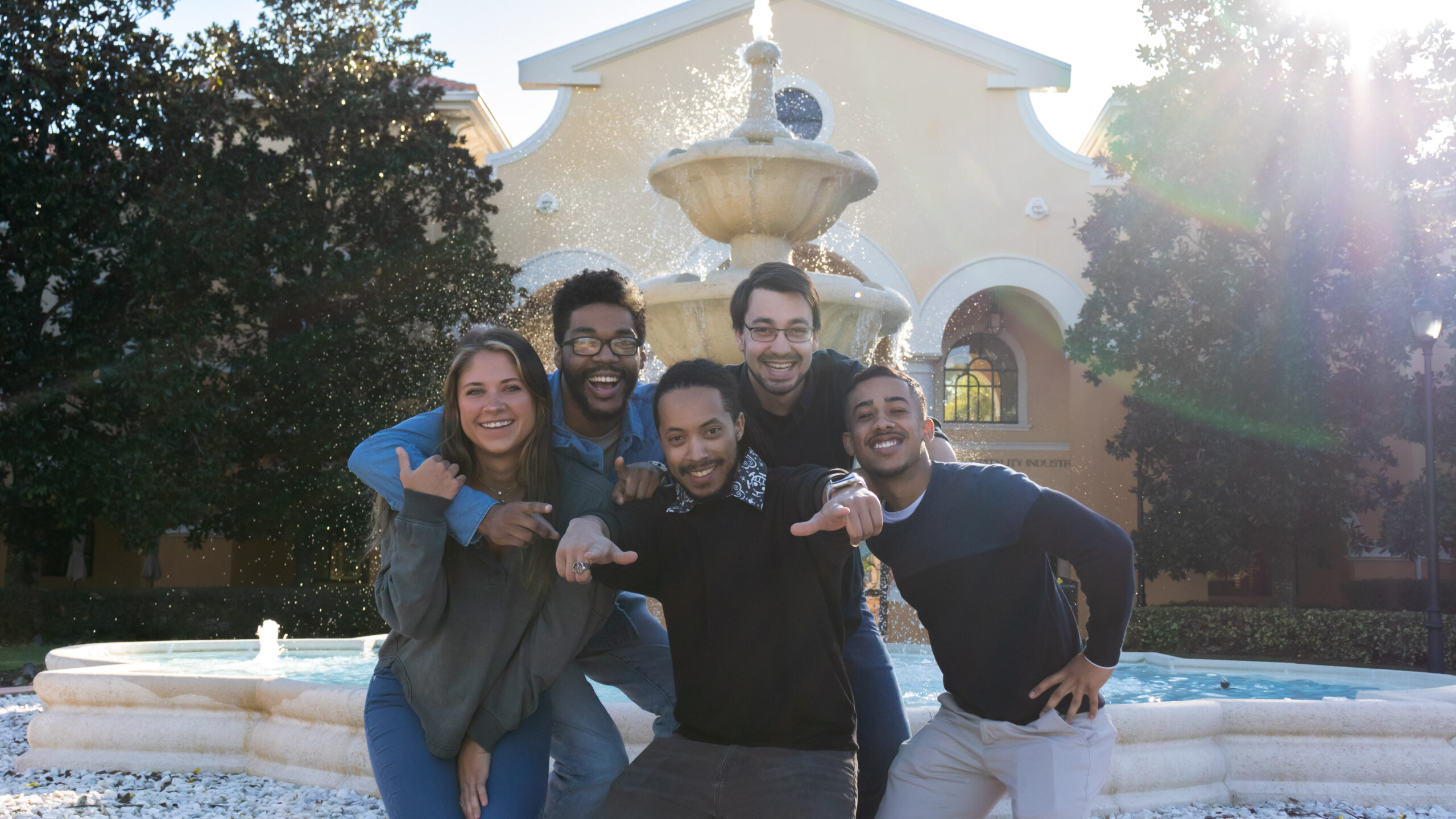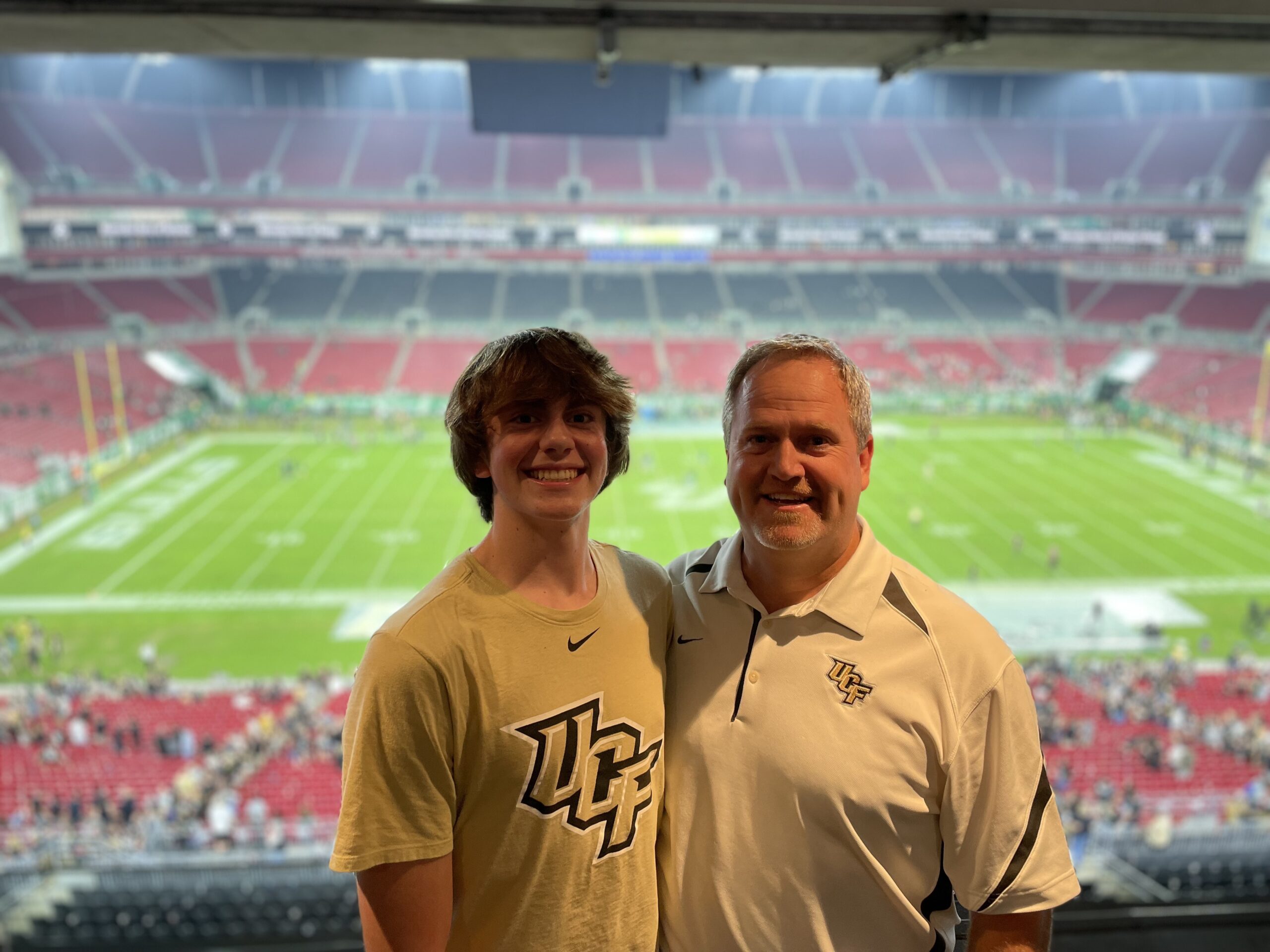Scholarship Recipient: Beatriz Elizabeth Carmona Toro ’05 ’07 ’10MSN
Beatriz Elizabeth Carmona Toro ’05 ’07 ’10MSN has wanted to work in healthcare for as long as she can remember. She was inspired by her mother, who was a physician in Colombia before the family moved to the United States when Carmona Toro was 7.
Carmona Toro is the first recipient of the Clinician Life Scholarship in Support of Hispanic Nurse Practitioners, established by Veronica Sampoya ’13BSN. She is currently in her second year of the Advanced Practice Nurse DNP program.
Her mother served as her family’s medical expert while she was growing up and continues to be a major influence in her life, Carmona Toro says. She witnessed the profound, calming effect that her mother had whenever any of her loved ones faced a medical crisis — and knew she wanted to serve as that type of resource when she grew up.
“Even as a teenager, I knew that it was important to know as much about medicine as I could,” Carmona Toro says. “I knew that if someone I cared about was sick, that I would need to know everything I could to help them.”
She decided that entering the nursing profession would be a great entry into healthcare.
“At the time, I was not aware of the education required for nurse practitioners, but I knew the first step was to become a registered nurse,” Carmona Toro says. “I also knew that because of financial circumstances that I would always have to work while in school.”
When Carmona Toro learned that there was a scholarship for students like her, she was amazed.
“I’ve never had any scholarships during my education, except for Bright Futures,” Carmona Toro says. “I went to college knowing the financial part was going to be a challenge, and to have this added support really takes some of the pressure off. I have been paying off my loans for my master’s program for almost 11 years. If I could go back in time, I would have applied for all the scholarships!”
Carmona Toro attended Seminole State College while simultaneously attending UCF. She supported herself through working as a licensed massage therapist, a certification she had earned because she knew that she would have to work while attending school.
“I finished an associate degree, and then three months later had my bachelor’s degree in nursing from UCF,” one of the key benefits of UCF’s Concurrent ASN to BSN program. After graduation, she began working as a nurse in a downtown Orlando hospital in a neurology unit.
Carmona Toro’s goal, however, was always to be a healthcare provider, so immediately after receiving her BSN, she entered the master’s program to become a nurse practitioner; she earned her certification as a Family Nurse Practitioner in 2011 through the American Board of Neuroscience Nursing.
After earning her master’s degree, she continued to work (in the field of Neurology and started working in Sleep Medicine) with neurological and sleep patients; but after ten years or so, her colleagues noticed her drive and skills and began to encourage her to go back to school for her doctorate. UCF’s program was a natural choice, not only because she had already received an excellent foundation in her field, but because she was already living and working in the area.
As a Hispanic clinician, Carmona Toro says she is aware of the language barrier that many of her patients face.
“After being in practice for more than a decade, I have noticed that many of my referred patients are primarily Spanish-speaking,” Carmona Toro says. “I know that in the Central Florida community we have a lot of residents who primarily speak Spanish, but I did not realize how important it was going to be to speak Spanish fluently as a provider in a specialty.”
And, Carmona Toro adds, not just to speak Spanish fluently but to be able to convey important medical information to a native speaker — something she has been training for all her life, even before she decided to become a clinician.
“When I became a practitioner, I realized how important it was to be able to communicate effectively with others of a similar culture.”
Often, Carmona Toro says, her patients are so grateful to be able to communicate with her that they tell her everything – all of their medical concerns, “because I’m the one that they can talk to right now.”
Sometimes, Carmona Toro answers questions about a medication that they’ve been on “forever,” because they did not understand the initial instructions that a previous clinician had given them.
Carmona Toro recalled one instance where an elderly patient with dementia came in with his wife. In this case, Carmona Toro was tasked with caring for both the patient and his wife. The patient with dementia had obvious needs, but his wife also needed support as his caregiver. It was even more important for Carmona Toro to be able to communicate with her in Spanish.
Whenever the couple left the exam room, Carmona Toro said the husband would burst into song as they walked down the hall. Carmona Toro would joke with them, “I know you’re doing well because you are happy and singing. If you ever leave here and you don’t sing, then I will know something is wrong.”
It’s a special camaraderie to be able to not only talk with her patients in a language that they are most comfortable with, but to share lighter moments with them as well, Carmona Toro says.
“My patients call me ‘Doctora’ now, because there is no specific term in Spanish for a nurse practitioner,” Carmona Toro says. “I explain to them the different terminology, but sometimes they don’t listen and still call me ‘Doctora.’ I am honored by their trust, and I am so grateful for this scholarship playing such an important role in my life and allowing me a bigger platform to help even more people.”
If you would like to contribute to the Clinician Life Scholarship in Support of Hispanic Nurse Practitioners or other nursing student scholarships at the UCF College of Nursing, please click here.
Written by Camille Dolan ’98


